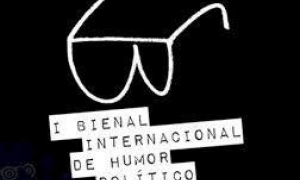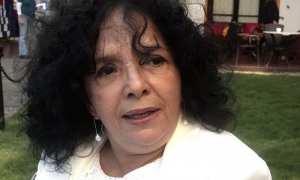
Latin America is celebrating the centenary of the great unconventional story-teller Julio Cortázar, an author remembered for his incisive texts, re-formatted novels and stunning stories - a body of work which reflected his political commitment, and expressed a new notion of the intellectual who believes utopias are possible. Cortázar with Roberto Fernández Retamar in Havana’s Casa de las Américas, 1979. Photo: Archivo Casa de las Américas. "I understood that socialism, which until then had seemed to me an acceptable, even necessary, historic current, was the only current in modern times based on the essential human," the writer commented in a 1967 letter to Cuban poet Roberto Fernández Retamar. On August 26, 1914, when Germany occupied Brussels in a prelude to WWI, Julio Florencio Cortázar Descotte was born to Argentine parents in Belgium. He produced his first literary works, including sonnets, during his childhood, and developed a taste for jazz and boxing. "When I was 30 or 32 - in addition to a number of poems out there, lost or burned - I began to write stories," he related to Luis Harss, author of Los Nuestros. When his first book, Presencias (1938), was published under the pseudonym of Julio Denis, Cortázar worked as a teacher in the city and province of Buenos Aires, and felt a growing sense of inconformity, which later became political. Cortázar with his third wife Carol Dunlop. Archive: Aurora Bernárdez. His opposition to Peronism - which he later admitted not understanding - led him in 1945 to the university Philosophy department in Mendoza, as a form of protest, and subsequently to self-imposed exile with his companion Aurora Bernárdez, in France, where he worked as a translator for UNESCO. Shortly thereafter, he published his first story Casa tomada, in the Buenos Aires magazine Anales (edited by Jorge Luis Borges), and wrote prolifically over the next decade, producing Bestiario (1951), Manual de instrucciones (1953), Final de juego (1956), Las armas secretas (1959), Historia de Cronopios y Famas, and Rayuela (1962). AN ACHIEVABLE UTOPIA A turning point in the writer’s life occurred when in 1961 he visited Cuba with his second wife Ugné Kervelis, a Lithuanian translator, impassioned about Latin America, who also became a staunch defender of the Cuban Revolution. The author of Rayuela with Chilean President Salvador Allende. "Without reasoning, without prior analysis, I suddenly experienced the marvelous feeling that my ideological path led me to return to Latin America; that this revolution, the first socialist revolution I was able to follow closely, might be a Latin American revolution," he wrote in a letter to Fernández Retamar, later published in the Casa de las Américas’ magazine. "This is the moment when I made mental connections, and when I asked myself, or told myself, that I had not attempted to understand Peronism," he commented in a conversation with Omar Prego published in La Fascinación de las palabras (1985). This contact with the Cuban Revolution awoke in Cortázar a new type of sensitivity, which is reflected in his work, evident in texts like "Reunión," a story included in Todos los fuegos; the poem Yo tuve un hermano; and the riddle Sílaba viva, dedicated to Ernesto Che Guevara. He challenged his intellectual peers, assuming literature as a political battlefield, re-asserting his interpretation of the world via a particular aesthetic, the use of meta-texts and combinations of languages. FIGHTING MULTI-NATIONAL VAMPIRES In Reunión, Cortázar describes the difficult days following the landing of the yacht Granma and the beginning of the armed insurrection in Cuba. Cortázar portrayed the profound humanity of the combatants, including Ernesto "Che" Guevara. Defending his political ideas, in a 1973 interview with the magazine Crisis, Cortázar asserted, "Everyone has their own machine gun. Mine, for the time being, is literature," referring to his recent work, Libro de Manuel, in which he addressed a broad range of Latin American problems. The book incorporates non-fiction elements, adding testimony from tortured dissidents, and news items which expose attacks on left-wing movements in the Southern Cone, within a story about a group of Latin American revolutionaries who lived in Paris. "This book was written when guerrilla groups were in full action. I had personally met some of the protagonists in Paris, and I was left horrified by the dramatic, tragic sense of their actions," Cortázar told Prego. The royalties from sales of the book in Argentina were donated to political prisoners. His books are considered classics of Spanish language literature. In 1975, Fantomas contra los vampiros multinacionales, una utopía realizable, which incorporates fiction, comics and facsimiles of real documents, to create a story describing the 1973 Russell II Tribunal in Brussels, which exposed the trampling of human rights in Latin America. The author uses several narrative lines to recreate, in a pulp fiction format, a story about the burning of books, a fictional event which shows who the real enemies are in Latin America: vampire multinational corporations and servile Southern Cone governments, run at that time by military dictatorships. Fantomas includes the actual verdicts from the Russell II Tribunal, which followed the 1966 first version of these international hearings, which exposed U.S. crimes in Vietnam. Russell II condemned the U.S. government, and Henry Kissinger in particular, for their participation in the coup which ousted President Allende in Chile. Julio Cortázar speaking during the 1980 Casa de las Américas awards ceremony. By the end of the 1970’s, Cortázar was a respected voice internationally, known for his opposition to the Argentine dictatorship of José Rafael Videla, his criticism of the Malvinas War, and support for the Sandinista Revolution in Nicaragua. On February 12, 1984, in Paris, the great story-teller died, having expanded narrative formats, remaining true to his belief that, "The good thing about utopias is that they are achievable." (Telesur)






